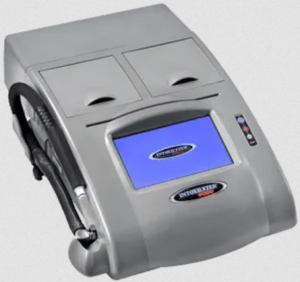
© 2014-2024 CMI Inc. All Rights Reserved. 316 E. 9th St., Owensboro, KY 42303
Omnis Law Group founding partner Attorney Curt Norcini has recently been retained by several clients charged with DUI, who have all either refused blood or breath testing when requested by the arresting officer. Their questions to Attorney Norcini, after the fact, are typically similar.
Driving Under the Influence (DUI) laws are stringent in Pennsylvania, and being pulled over for suspicion of impaired driving can be a stressful experience. One crucial decision an individual will face during a DUI stop is whether to consent to provide a sample of blood, breath, or urine (at the police officer’s discretion). In this article, we’ll briefly delve into the implications of refusing chemical testing in Pennsylvania and the legal aspects associated with this decision.
Implied Consent Law: Pennsylvania, like many states, has an implied consent law. This means that by obtaining a driver’s license and operating a vehicle on the state’s roads, individuals implicitly agree to chemical testing if a law enforcement officer suspects them of driving under the influence. While this includes blood, urine, and breath tests, breath testing is the most common method employed during a DUI stop.
Consequences of Refusal: Refusing to provide a sample for testing in Pennsylvania triggers immediate consequences. The Pennsylvania Department of Transportation (PennDOT) imposes administrative penalties, including a mandatory license suspension. The length of the suspension varies depending on whether the individual has any prior refusals or DUI convictions. It’s essential to be aware that these administrative penalties are separate and district from any criminal charges that may arise from the DUI stop.
Impact on Criminal Case: Refusing chemical testing does not guarantee immunity from DUI charges. In fact, the prosecution can use the refusal as evidence in court, arguing that the refusal implies consciousness of guilt. While the absence of chemical test results makes it impossible for the prosecution to prove blood alcohol concentration (BAC), it doesn’t preclude them from building a case of general impairment based on other evidence such as field sobriety tests, officer observations, and witness observations.
Challenging the Refusal: Individuals who refuse to provide a sample for chemical testing may still have legal avenues to challenge the administrative consequences. Note that the challenge to a driver’s license refusal is civil in nature and is separate and apart from the DUI criminal matter. Once an appeal is filed, PennDOT has in-house counsel that handles matters such as this. The refusal laws as they are written are not kind to matters surrounding refusals, If an individual files a legal challenge to negate the penalties from a refusal, a hearing is scheduled before the Court. A PennDOT attorney will appear to fight the individual’s challenge and to argue that the Court should enforce the administrative penalties. The laws dealing with refusal of chemical testing are onerous, and it’s typically an uphill battle. It’s crucial to consult with an experienced DUI attorney who can assess the circumstances surrounding the stop and refusal. Some potential defenses include:
- Unlawful Stop or Arrest: If the law enforcement officer lacked reasonable suspicion or probable cause, it may be possible to challenge the legality of the stop or arrest.
- Improper Administration of Tests: If the blood, breath, or urine sample was not collected following proper and approved procedures, if the chemical testing was not administered correctly, or if the testing equipment was not properly maintained of otherwise faulty, it could be grounds for challenging the validity of the results.
- Medical Conditions or Other Factors: Certain medical conditions or other factors may affect an individual’s ability to provide a breath sample. This information can be vital in building a defense.
Refusing to provide a sample for chemical testing during a DUI stop in Pennsylvania comes with ancillary consequences, both administratively and potentially in the criminal case. While the implied consent law is in place, individuals have the right to challenge the legality of the stop and the accuracy of the testing procedures. Seeking competent legal advice is crucial to understanding the best course of action based on the specific circumstances of each case.
If you or someone that you know needs an aggressive, professional, experienced DUI defense attorney, the attorneys at Omnis Law Group, LLC are here to help. You can contact the firm online or call 484-81-OMNIS to set up your free consultation.









